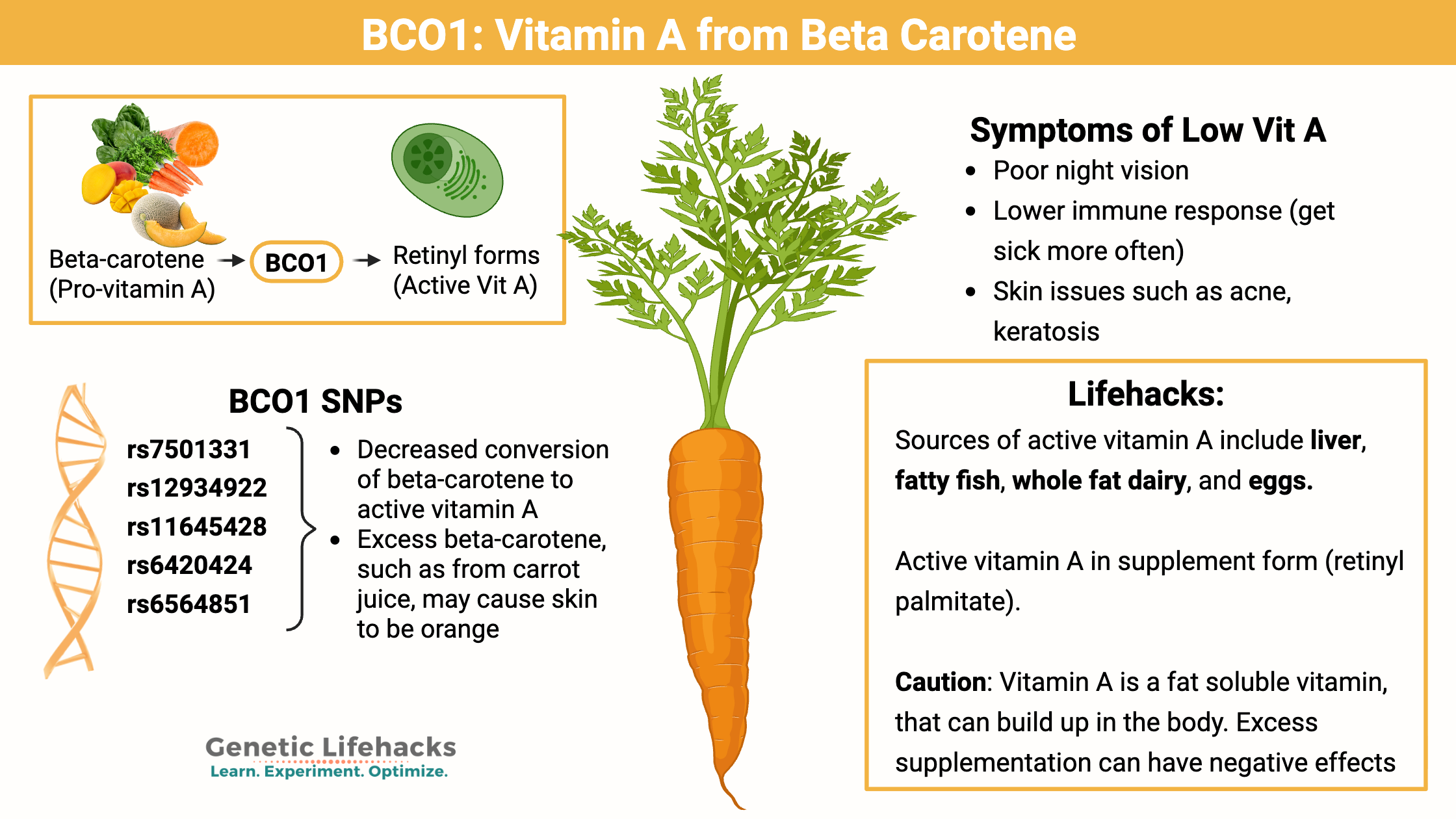The BCMO1 gene is responsible for the enzyme that converts beta-carotene into the active form of vitamin A that your body needs. SNPs in this gene cause it to not function as well, possibly leaving you deficient in vitamin A.
These two SNPs add together to impair your ability to convert beta-carotene.
People with a T allele on both rs12934922 and rs7501331 have a 69% decreased conversion of beta-carotene to retinol. For people with only a single T in the rs7501331 SNP, the conversion is decreased by 32%.[ref]
Members: See your data below
Log in and select your data file Not a member? Join now.
Check your genetic data for rs7501331 (23andMe v4, v5, AncestryDNA):
- C/C: typical
- C/T: decreased beta-carotene conversion
- T/T: decreased beta-carotene conversion
Members: Your genotype for rs7501331 is —.
Check your genetic data for rs12934922 (23andMe v4, v5):
- A/A: typical
- A/T: decreased beta-carotene conversion
- T/T: decreased beta-carotene conversion
Members: Your genotype for rs12934922 is —.
Want more details? Check out the full article on the BCMO1 gene.
*SNP stands for Single Nucleotide Polymorphism, which is when one of the nucleotide bases (the A, C, G, or Ts) is replaced by a different nucleotide base in a gene. Want to know more about your genes? Read through all the Snips about SNPs.
Related Articles and Topics:
What can you do with your 23andMe or AncestryDNA raw data?
Resources for using your raw genetic data file from 23andMe or AncestryDNA
Genetics on Reddit
Best places to learn more about current genetics research and 23andMe on Reddit
Mast cells: MCAS, genetics, and solutions
Mast Cell Activation Syndrome, or MCAS, is a recently recognized disease involving mast cells that misbehave in various ways. Symptoms of MCAS can include abdominal pain, nausea, itching, flushing, hives, headaches, heart palpitations, anxiety, brain fog, and anaphylaxis. Dive into the research on mast cells, genetics, and solutions.
Histamine Intolerance
Chronic headaches, sinus drainage, itchy hives, problems staying asleep, and heartburn — all of these symptoms can be caused by the body not breaking down histamine very well. Your genetic variants could be causing you to be more sensitive to foods high in histamine. Check your genetic data to see if this could be at the root of your symptoms.

